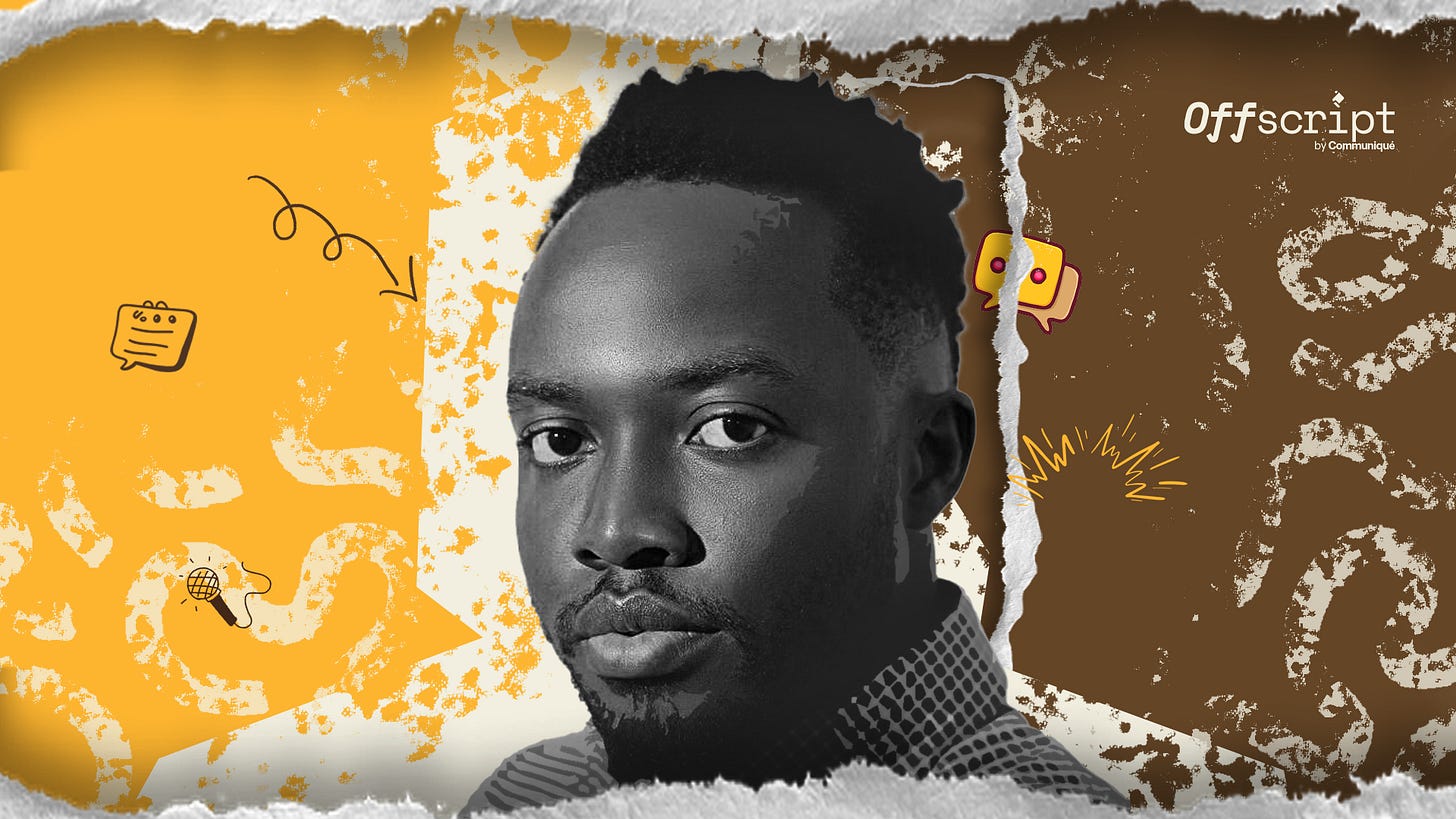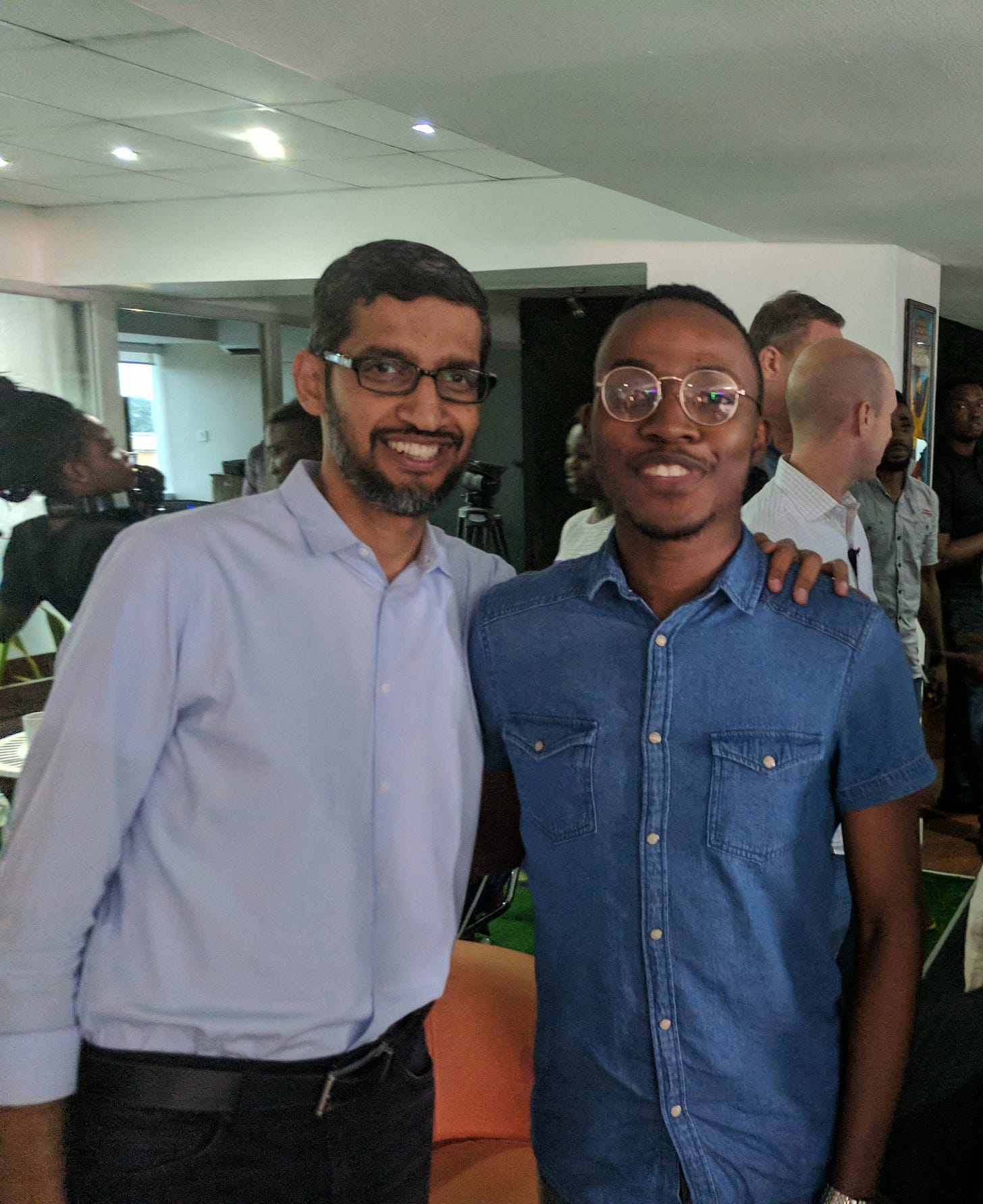Offscript with Benjamin Dada
Condia’s founder on building one of Nigeria’s leading tech publications.
“I need people who are hungry to ship, not people who want to be handheld or people who are just trying to get by.”
That’s how Benjamin Dada frames what he looks for in prospective hires. As a student, he embodied that same hunger, which earned him internships at some of Nigeria’s earliest startups. Those experiences laid the foundation for Condia, the tech publication he founded in 2018, which has since grown into one of Nigeria’s leading technology publications.
Most media entrepreneurs trace their passion back to childhood, spending long afternoons buried in books, newspapers, or any form of literature they could find. But for Dada, it was different. Born to a businessman father and a teacher mother, he had no clear role models for what a career in the media should look like. “I was not intrigued by news, broadcasting, or writing. In fact, in secondary school, when we did essay writing, I never went above 30 over 50,” he recalls with a laugh.
What he did have was an inclination towards technology. After secondary school, that interest guided him to Covenant University, where he studied Management and Information Science. During school holidays, Dada took internships at different startups, including Andela, Stutern, and Eyowo. In his final year, he got a coveted internship at Google. It was during these internships that he first began writing, motivated by the need to build a personal brand. “When I started writing on Medium, it was a way for me to build my digital footprint, to own my slice of the internet.”
Medium made the writing experience more enjoyable, and soon he was eager to get his friends on it too. Like his younger self, many of them didn’t consider themselves writers. And those who were willing to try often got discouraged by the effort required to promote their articles and find readers.
Now that he had begun building an audience of his own, he decided to lower that barrier. He launched a publication on Medium and called it Write, with the tagline, “You write, we edit and share.”
On Write, and on his own personal Medium, Dada wrote about everything: his internship experiences, the tech conferences he attended, and broader analyses of emerging tech trends. One of those articles eventually caught the attention of Bella Rose, then editor at Tech City. Impressed by his clarity and curiosity, she invited him to join the publication as a writer.
After graduating from Covenant University with a first-class degree, Dada moved to the UK for a Master’s at the Lancaster University. The programme sharpened his analytical skills, adding academic rigour to the experience he had gained during his internships.
He was still writing for Tech City during this period, but the outlet had begun to lean heavily into video. Dada, whose strength lay in deep, analytical storytelling, began to feel out of place. Rather than bend to fit the shift, he decided to leave and start his own publication on the side, while still working at different startups.
At the time, Nigeria’s tech media landscape was crowded with outlets, most of them using the “Tech” prefix in their branding. Dada wanted something different. But when he couldn’t settle on a fitting name, and not wanting to delay the launch, he put his own name on the masthead, and Benjamindada.com was born.
Having his name on the publication naturally shaped perceptions about its direction. At the time, one of Nigeria’s most popular online news platforms was Linda Ikeji’s. Some observers assumed Benjamindada.com would take a similar approach and become the “gossip blog” of tech. But Dada wanted something different.
Starting as a one-person publication, he knew he couldn’t compete with established newsrooms on speed or volume. What he could do, however, was lean into his strengths. Rather than chase every breaking headline, he focused on depth: stories that explained the why, the how, and the what’s next behind the news. His aim wasn’t to be the fastest, but to be the most insightful.
“So I’d take all the analytical and rigorous writing learned in my MSc, blend it with my tech and fintech experience from working at different startups, and combine it with my journalism experience to be able to spot what was newsy but also impactful, and come up with something I would call impressive reporting on tech and startups in Sub-Saharan Africa. That was our first tagline.”
By 2019, just a few months after its launch, Dada hired the publication’s first writer and began to build out its team. In many ways, Benjamindada.com became a kind of talent factory, producing writers who would go on to thrive across journalism and content marketing. The publication’s DNA demanded clarity, structure, and audience awareness. Writers weren’t just reporting facts; they were taught to think about how a story travelled, how it engaged readers, and how insights could be packaged to resonate. Those same skills—storytelling, audience targeting, and consistency—are the foundations of great content marketing.
Some of the publication’s alumni are proof of this. Johnstone Kpilaaka is now Sub-Editor and Head of Standards at HumAngle. Jeremiah Ajayi went on to become Content Marketing Manager at RemotePass. And for his own work, Dada picked up multiple recognitions, including the Art of Technology Journalist of the Year Award.
As the publication grew, Dada began to think about what its next stage could look like. At one point, he considered an acquisition, but that didn’t work out. Another idea was to reposition the publication as a content services company for the wave of startups building media engines from scratch. “At some point, we considered becoming a content and infrastructure company where we go into startups, help them set up their content team, then we check out. If everybody was digging for gold, then maybe we sell the shovel.”
But in the end, Dada decided to double down on building Benjamindada.com into a full-fledged publication. He brought in Daniel Adeyemi, a former senior writer at TechCabal, as the company’s first Managing Editor.
That decision also came with another realisation: the name had to change. In its formative years, the publication had grown on the strength of Dada’s personal brand. “Our early leverage was my personal brand, because to be honest, the media needs a face. If not, propaganda will be everywhere. One of the biggest frustrations with traditional media is that you can’t talk back. But people knew me and felt they could talk to me,” he says.
But by 2024, the publication had outgrown his personal brand. It needed to stand on its own. So Benjamindada.com became Condia. Now, Dada is focused on building Condia into a proper business. That means thinking beyond stories and scoops, to the structures and systems that keep a company alive.
“Before it was let us not die. Now we are growing, and if you’re growing, you’re thinking about the people that are working here. How do I incentivise work and make the workplace more interesting so they stay with us longer? How do I build processes that are repeatable and scalable?”
It’s a shift from the early hustle of writing, editing, and publishing as a one-person newsroom to the broader demands of leadership and operations. For Dada, the task now is ensuring that Condia isn’t just respected as a platform but is also sustainable as a company.
And in many ways, that focus brings him full circle: still hungry to ship, but this time, it’s not just stories he’s shipping but an enduring media business.





I have known about his work for a while now. I actually thought he and the business were of a South African origin. Amazing piece, sir. 🔥